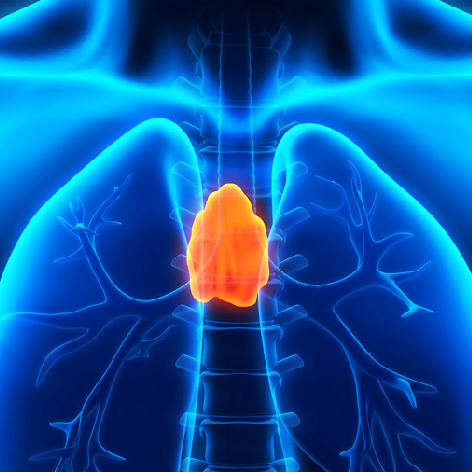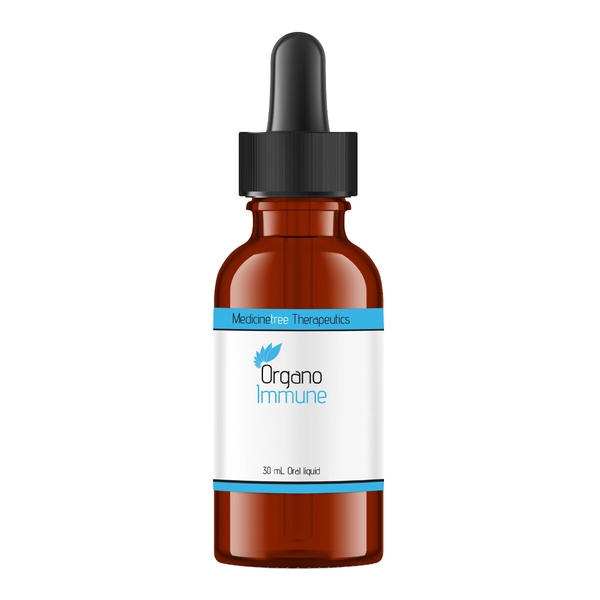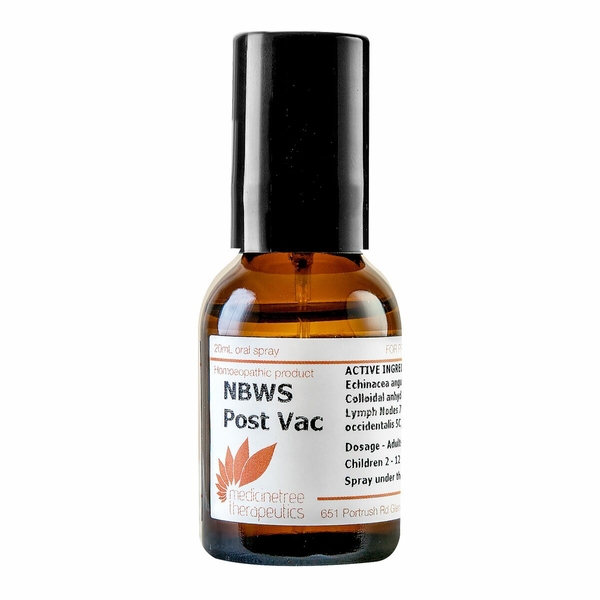
Thymus extract
Alternate names: Complexe de Peptides Thymiques, Extracto de Timo, Extrait de Thymus, Extrait Thymique, Polypeptides Dérivés de Thymus, Predigested Thymus Extract, Protéine Thymique, Pure Thymic Extract, Thymic Extract, Thymic Peptide, Thymic Protein, Thymic Protein A, Thymomodulin, Thymosin, Thymosine, Thymostimulin, Thymostimuline, Thymus, Thymus Acid Lysate Derivative, Thymus Complex, Thymus Concentrate, Thymus-Derived Polypeptides, Thymus Factors, Thymus Polypeptides, Thymus Substance
Actions: Anti-arthritic, Anticancer, Antilipemic, Antioxidant, Endocrine, Hair loss prevention, Immunomodulatory, Thyroid, Weight gain, Other
Background
The human thymus gland is responsible for making important immune cells, such as T-cells. Thymus extract comes from the thymus glands of cows.
Thymus extract might help increase immune function. But the quality and potency of thymus extract products can vary greatly.
People use thymus extract for a weakened and enlarged heart (dilated cardiomyopathy) and infections of the airways. It is also used for asthma, food allergies, hay fever, cold sores, and many other conditions, but there is no good scientific evidence to support most of these uses.
Since thymus extract products come from cows, they are at risk for contamination with diseases. This has raised concerns about whether thymus extract can cause infections in humans, but there are no reports of this happening.
Thymus extract might help increase immune function. But the quality and potency of thymus extract products can vary greatly.
People use thymus extract for a weakened and enlarged heart (dilated cardiomyopathy) and infections of the airways. It is also used for asthma, food allergies, hay fever, cold sores, and many other conditions, but there is no good scientific evidence to support most of these uses.
Since thymus extract products come from cows, they are at risk for contamination with diseases. This has raised concerns about whether thymus extract can cause infections in humans, but there are no reports of this happening.
Safety Safety definitions
When taken by mouth: Thymus extract is possibly safe when used appropriately. It seems to be well-tolerated. Because thymus extract comes from animals, there is concern about contamination with diseases. But so far, there are no reports of infections in humans due to use of contaminated thymus extract.
Weakened immune system: People who have a weakened immune system or people who are taking drugs to weaken their immune system have a higher risk of infection. These people should avoid thymus extract products unless these products are certified germ-free.
Special Precautions & Warnings:
Pregnancy and breast-feeding: There isn't enough reliable information to know if thymus extract is safe to use when pregnant or breast-feeding. Stay on the safe side and avoid use.Weakened immune system: People who have a weakened immune system or people who are taking drugs to weaken their immune system have a higher risk of infection. These people should avoid thymus extract products unless these products are certified germ-free.
Effectiveness
NatMed Pro rates effectiveness based on scientific evidence according to the following scale: Effective, Likely Effective, Possibly Effective, Possibly Ineffective, Likely Ineffective, Ineffective, and Insufficient Evidence to Rate.
Possibly effective Effectiveness definitions
- Weakened and enlarged heart (dilated cardiomyopathy). Taking calf thymus extract along with usual therapy may improve heart function, some symptoms, and the ability to exercise in some people with dilated cardiomyopathy and reduced heart function.
- Infection of the airways. Taking thymus extract by mouth might help to reduce the number of infections or coughing attacks in people who get a lot of airway infections.
Dosing & administration
Calf thymus extract has most often been used by adults in doses of 80-120 mg by mouth daily for up to 4 months. Similar doses have been used in children of at least 7 months of age. Speak with a healthcare provider to find out what type of product and dose might be best for a specific condition.
Interactions with pharmaceuticals
Medications that decrease the immune system (Immunosuppressants)
Interaction Rating=Moderate Be cautious with this combination.
Thymus extract is made from animals. There is some concern that products made from animals might contain harmful diseases and cause infections. Taking medications that decrease the immune system might increase your chances of getting sick from taking thymus extract. Do not take thymus extract unless these products are certified germ-free.
Interactions with herbs & supplements
There are no known interactions with herbs and supplements.
Interactions with foods
There are no known interactions with foods.
Products
View all productsPer serve:
- Porcine thymus gland
- Cistus canadensis
- Phytolacca decandra
- Porcine lymph nodes
- Porcine spleen
- Porcine lymphatic vessels
- Vitex agnus-castus
- Phosphoric acid
- Porcine blood
- Porcine bone marrow
- Porcine tonsils
Practitioner product
Per 0.52 mL:
- Porcine thymus gland
- Echinacea angustifolia
- Colloidal anhydrous silica
- Porcine lymph nodes
- Porcine blood
- Porcine lymphatic vessels
- Thuja occidentalis
- Phytolacca americana (Pokeweed)
- Acidum ascorbicum
Discontinued by Medicine Tree
Practitioner product
vital.ly has licensed monographs from TRC Healthcare.
This monograph was last reviewed on 18/11/2024 11:00:00 and last updated on 09/10/2020 02:36:37. Monographs are reviewed and/or updated multiple times per month and at least once per year.
Natural Medicines disclaims any responsibility related to medical consequences of using any medical product. Effort is made to ensure that the information contained in this monograph is accurate at the time it was published. Consumers and medical professionals who consult this monograph are cautioned that any medical or product related decision is the sole responsibility of the consumer and/or the health care professional. A legal License Agreement sets limitations on downloading, storing, or printing content from this Database. No reproduction of this monograph or any content from this Database is permitted without written permission from the publisher. It is unlawful to download, store, or distribute content from this site.






